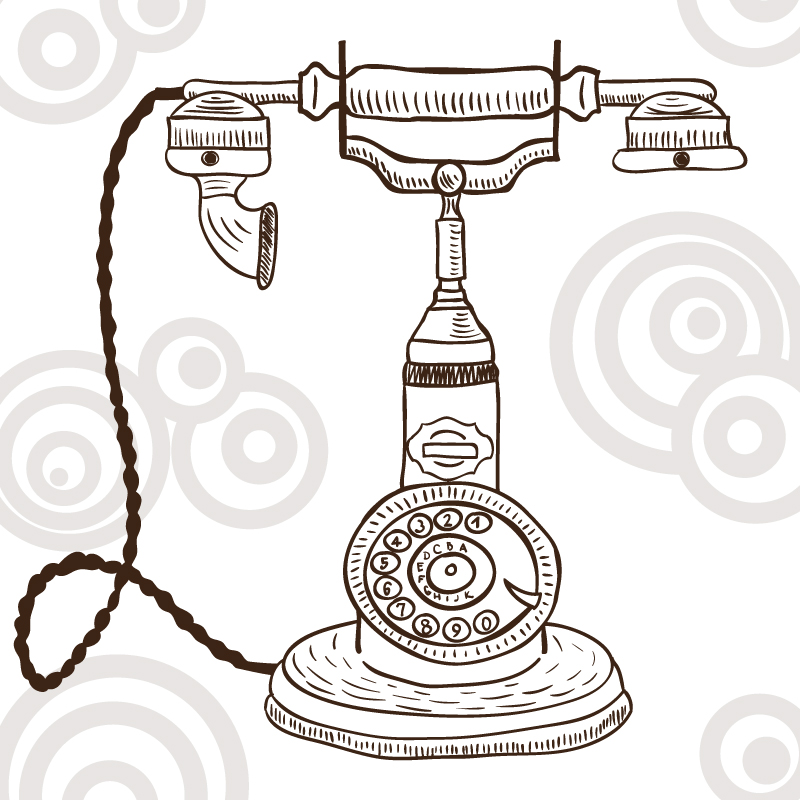
Have you ever been put on hold and then couldn’t remember who you called? Have you dialled someone and then had to stop and think about the reason you made the call? We are often so busy and wrapped up in our own work that we sometimes forget that a real human being is on the other end of a telephone call.
Have you ever been put on hold and then couldn’t remember who you called? Have you dialled someone and then had to stop and think about the reason you made the call? We are often so busy and wrapped up in our own work that we sometimes forget that a real human being is on the other end of a telephone call. Particularly today, with mobile phones that can cut in and out or even drop calls, it’s very important to pay attention to the quality of your speech and the attitude your tone conveys when speaking on the phone.
The key is to identify common issues or problems you have when speaking on the telephone. Let’s take a look at some common complaints about phone conversations and ways to correct them. Paying attention to these issues will make sure that you are understood as clearly as possible:
1 Do you ever interrupt or talk over another person without meaning to? This issue can happen often during a cell phone conversation. Because some cell phones are designed to blank out the quieter end of a conversation, it’s easy to interrupt someone and completely lose what they were going to say.
To correct the issue, be sure to wait a second or so after you think someone has finished speaking before starting your own statement. If they are merely pausing to take a breath, you won’t cut off the rest of what they are saying.
2 Do people constantly ask you to repeat what you have said? If you mumble or speak too quickly, it causes others to constantly ask you to repeat what you are saying. Do you often hear, “Sorry?” or “Can you repeat that please?” If so, you are probably either mumbling or speaking too quickly.
To correct this, slow down and enunciate. Remember – you know what you are going to say, but the person on the other end doesn’t, and is relying on you to speak clearly and loud enough to understand you.
3 Do you speak the other person’s language with your own accent? This ties in with the second item on the list. If you speak with an accent that the other person is not familiar with, you must not speak at the speed you would normally use. If you do, more often than not, your listener will struggle to understand you.
To alleviate any misunderstandings, slow down and use good intonation. Your cubicle mate might be able to understand you just fine, but chances are he or she has the same accent as you. Non-native speakers of your language will appreciate you taking the time to pronounce words carefully, making sure you complete word endings properly.
4 Do you ever answer the phone while chewing gum or eating? This can be most annoying during a phone conversation. Not only does the food or gum in your mouth cause your speech to be garbled and difficult to understand, you are also regaling your listener with rather disgusting smacking, crunching and munching sounds.
The solution to this is quite simple – just don’t do it. If you are eating lunch at your desk and the phone rings, either wait until you have completely cleared your mouth or let your voicemail take the call. It is so much more professional to call someone back than to spend the first few minutes of the call apologising. As for gum, don’t chew it at work. It’s never been professional and it never will be.
5 Do you just ignore background noise? While listening to the radio in your hard-walled office might help you concentrate better, it’s certainly not going to help the other person in your telephone conversation understand you more clearly. In fact, loud background noise will often do the opposite. With today’s cell phones, loud background noise might even cause the other person’s speech to blank out, making you think they are not speaking at all.
To correct this, prepare for business calls ahead of time whenever possible. If you are aware of an office mate’s loud music or a bothersome conference room right across the way, close the door to your office or find a quiet place to take a call. Under no circumstances try to talk over the noise. If necessary, apologise to the other person and offer to call them back immediately once you have a quiet environment. If all else fails, ask others around you to please keep it down.
6 Have you ever multi-tasked while on the phone? Yes, you are a business superwoman! You can type an email, prepare a presentation and talk on the phone all at the same time! The problem with that is that the person on the other end of your call knows you are not giving them your full attention. They will hear pauses in your responses, computer sounds and even your keyboard clacking away.
The solution to this is simple: stop what you are doing and give the caller your full attention. If you need to look something up on your computer in order to help them, let them know. Then the clackety-clack of your keyboard will be a welcome noise instead of a sign of disrespect.
Even with all the gadgets and software that allow for a video to accompany a phone call, most phone conversations still take place in the dark, so to speak. The person on the other end can’t see the expressions on your face. Besides correcting any issues you have with clarity, volume or accent, make sure to smile when you are speaking. The smile will come through in your voice and tone, resulting in a better business image for you and your company.













